Friday morning I got into the family car (1998 VW Passat with manual transmission) and, depressing the clutch, started the engine. The car rocked backwards (I normally leave the gearshift in reverse when parked, plus the parking break was on), the engine died, and the clutch petal stayed on the floor (not good!). The clutch petal had lost all resistance, so I couldn’t shift the car. Looking under the hood, I found that a hose leading from the brake fluid reservoir had popped off and sprayed brake fluid around. I connected it back to the reservoir, and started the engine in Neutral, but the clutch didn’t magically start working. (Sigh…I like easy solutions.) Twenty Dollar bike to the rescue!
After biking to the MARTA station and getting to work, Erich said that it sounded like a hydraulic clutch system failure (Master/Slave cylinder problem, a leak, or just air in the system) and I researched the problem on the Internet enough to know that the first step would be to try and bleed the clutch system at the slave cylinder following the excellent directions here. Since I didn’t want to do a two-person bleeding job with only one person (and I didn’t have any spare DOT-4 synthetic break fluid laying around), I fired up the Van for it’s every 3 month drive and went to AutoZone on Saturday. I bought two quarts of DOT-4 and a MityVac hand-held vacuum pump for $41 (I’ve always wanted a vacuum pump…now I can make bells ring without noise).
I hooked the vacuum pump to the bleed valve, but pump as I might, I just couldn’t get much (any) brake fluid to flow from the reservoir. Finally I decided that perhaps the hose had been plugged, so I unhooked it and was able to draw a lot of air into the system. So I decided the hose was fine, and examined the nozzle to the brake fluid reservoir that it had been plugged into, expecting to find a grimy clog, which could explain why the clutch had failed in the first place! Nothing doing, the nozzle was shiny clean plastic. So shiny clean plastic, that I couldn’t get brake fluid to spill out of it. As it turns out, the nozzle needed to be cut open before the hose was attached to allow brake fluid to flow into the hose!
I assume the nozzle is not used in an automatic transmission vehicle, so the reservoir is designed to work with both types of systems, and the installer is supposed to be smart enough to cut open any nozzles they want to attach to hoses.
Looks like our installer wasn’t smart enough. I can’t imagine this being done at the factory, so the brake fluid reservoir must have been replaced, either in the two years before my wife bought the car, or the one time she took it to a shop to get the brake rotors turned. (Unless they accidentally broke the reservoir when bleeding the brakes, I can think of no reason for a shop to replace it while doing a standard brake job.) The interesting thing is that the clutch had been working for at least the last three years with no connection to the reservoir!
UPDATE: At least one other B5 Passat had the same issue, see the comment below. So it may be that there are other B5 Passat’s without this nozzle tip cut off from the factory. Luckily, it appears that the clutch cylinders work well without a refill for long periods of time….
It had been shifting a bit harder than usual over the last six months, but not bad enough for me to really worry about. After I bled the clutch system it does shift slightly more smoothly now, so I guess being able to drive the slave cylinder the whole way is a good thing! I went ahead and cut off the plastic tip on the nozzle and attached the hose with a hose-clamp, so hopefully it’s good for another 2-3 years until we get the breaks done again.
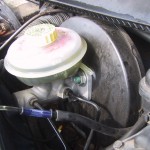
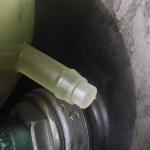
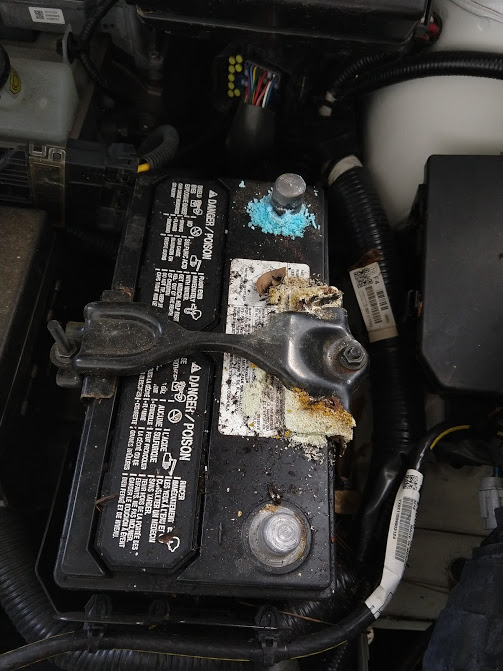
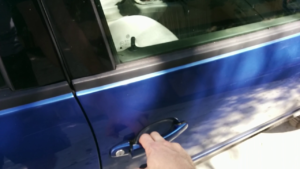
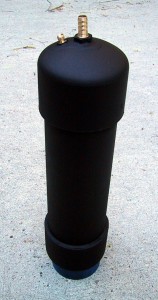

8 years ago almost to the day… I just had the same problem with my B5 passat and found your page here, fixed my car for $0 and 20 minutes of my time.
I saw the hose was loose from the brake fluid reservoir and googled the solution. Luckily I found your page and went to see if my reservoir had the plastic nozzle tip enclosed. Cut it off, put the hose on with a hose clamp and pumped the air out of the line until the clutch came back to life.
You are a wizard, sir. Thank you.
One question, how long did your clutch work after the fix?
The clutch still going strong, eight years later!
It sounds like somebody at the VW factory didn’t get the memo that the tip needed to be cut off when installing the clutch line for a manual transmission. I wonder how many of these cars are out in the world with the same problem!
I was very worried guys about that. I was driving my 02 1.8t manual Passat . I stopped at a stop light when I try to engage the clutch it went right to the floor . I panicked because this is my second manual car and never had that. I managed to park it then googled Passat clutch issue. I look under the car brake fluid was leaking . Now I have an idea . Thx guys
Yoooooooo! Just took the hose off that you guys mentioned, and guess what? You don’t know how happy I am. Going to get the job done here soon! Thank you!
Eight year update: My break fluid reservoir had developed some cracks so I took it to the mechanic to replace it (Cost: $207 with parts/labor/new fluid and a brake/clutch flush). He said that he had seen the issue where the port was not opened from the factory before (and also that the plastic reservoir developing cracks after 18 years was common).
can I trust that my passat will ruin after a clutch failure, by just bleeding the lines ??
Only if the “failure” was simply that the pedal was not engaging the clutch. There are many other type of clutch failures that are much worse than air in the hydraulic fluid line and will cost much more to repair.
I have had my clutch, master cylinder, and slave cylinder all just replaced with brand new parts and after having my car back for 2 weeks the clutch pedal goes to the floor again and I panic, have triple A take it back to the mechanic and he said he had to replace the slave cylinder again , then I get it back and 2 weeks later again and it happens again. I have now put $1500 into this car. I’m about to lose my mind. my car is a 2002 VW Passat manual 1.8 cyl turbo wagon .
Does anyone have any advice please ??
My only advice here is to try a different mechanic.
I switched my clutch master cylinder but clutch still soft do i need to bleed it through that hose or wat
You should certainly try bleeding it, as trapped air can cause a soft clutch. If that doesn’t fix the issue, you may have something else.